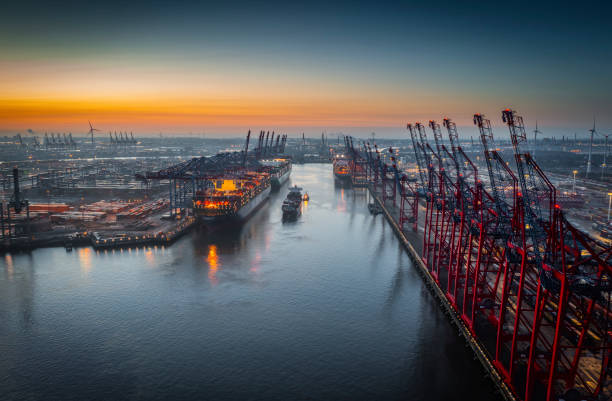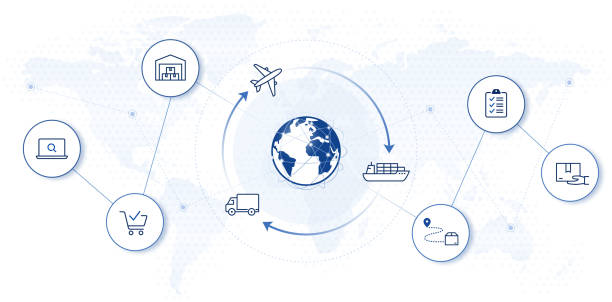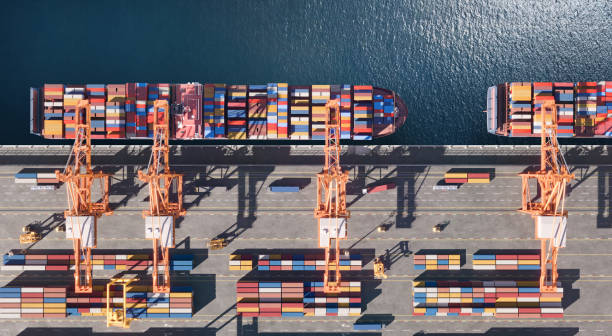
Businesses rely heavily on international shipping companies to move goods efficiently across borders. However, navigating customs regulations, coordinating transport modes, and ensuring timely delivery can be challenging. This is where a freight forwarder comes in. But is shipping freight forwarding truly the best option for international logistics? Let’s explore its advantages, potential drawbacks, and when businesses should consider using a freight forwarding service.
Freight forwarding is a specialized service that manages the transportation of goods from one location to another, often across international borders. A freight forwarder acts as an intermediary between shippers and various transportation services, including air, sea, rail, and trucking. Unlike carriers that directly transport goods, freight forwarders handle logistics planning, documentation, customs clearance, and cargo consolidation to ensure smooth and efficient shipping.
Advantages of Using Freight Forwarding for International Shipping
1. Expertise in International Logistics
Navigating complex global shipping regulations, trade agreements, and customs procedures requires extensive knowledge. International shipping companies may offer direct services, but a freight forwarder ensures that shipments comply with regulations, reducing the risk of delays, fines, or confiscation.
2. Cost-Effective Solutions
A freight forwarder has established relationships with multiple carriers, allowing them to negotiate better shipping rates. They can also consolidate shipments, reducing costs for businesses that ship smaller volumes.
3. Flexible and Scalable Shipping Options
Unlike standard carriers, shipping freight forwarding services offer tailored solutions based on a company’s unique needs. Whether shipping large cargo, fragile goods, or temperature-sensitive items, freight forwarders customize logistics plans for efficiency and safety.
4. End-to-End Supply Chain Management
From packing and warehousing to customs brokerage and last-mile delivery, freight forwarders handle the entire shipping process. This ensures a seamless experience and minimizes the burden on businesses, allowing them to focus on core operations.
5. Risk Management and Insurance Options
International shipping comes with risks, including cargo loss, damage, and delays. A freight forwarder provides insurance options and risk mitigation strategies, helping businesses protect their shipments and avoid financial losses.

Potential Drawbacks of Freight Forwarding
1. Additional Service Fees
While freight forwarders offer cost-effective shipping solutions, their services come at a price. Small businesses with minimal shipping needs may find direct carrier services more budget-friendly.
2. Dependence on Third-Party Providers
Since shipping freight forwarding involves coordinating multiple transportation providers, unexpected disruptions (e.g., carrier delays, customs holds) can impact delivery timelines. Choosing a reliable freight forwarder with a strong track record is crucial to avoiding such issues.
3. Longer Transit Times for Consolidated Shipments
Consolidation can save costs, but it may lead to longer delivery times as freight forwarders wait to fill shipping containers or group shipments. Businesses with urgent delivery requirements may need to opt for expedited shipping options.

When Should Businesses Use a Freight Forwarder?
A freight forwarder is ideal for businesses that:
Ship goods internationally on a regular basis.
Need assistance navigating customs regulations and trade compliance.
Want to reduce shipping costs by consolidating cargo.
Require multi-modal transportation solutions for specialized shipments.
Seek risk management and insurance coverage for valuable cargo.
Conclusion: Is Freight Forwarding the Best Option?
For most businesses engaged in global trade, freight forwarding is a highly efficient and cost-effective solution. A reputable freight forwarder simplifies complex shipping logistics, ensures compliance, and optimizes transportation costs. However, companies with minimal shipping needs or urgent, small-scale shipments may find direct international shipping companies a better alternative.
Ultimately, the best choice depends on the specific shipping requirements of your business. By evaluating factors such as cost, speed, and logistics complexity, you can determine whether shipping freight forwarding is the right strategy for your global supply chain.





















